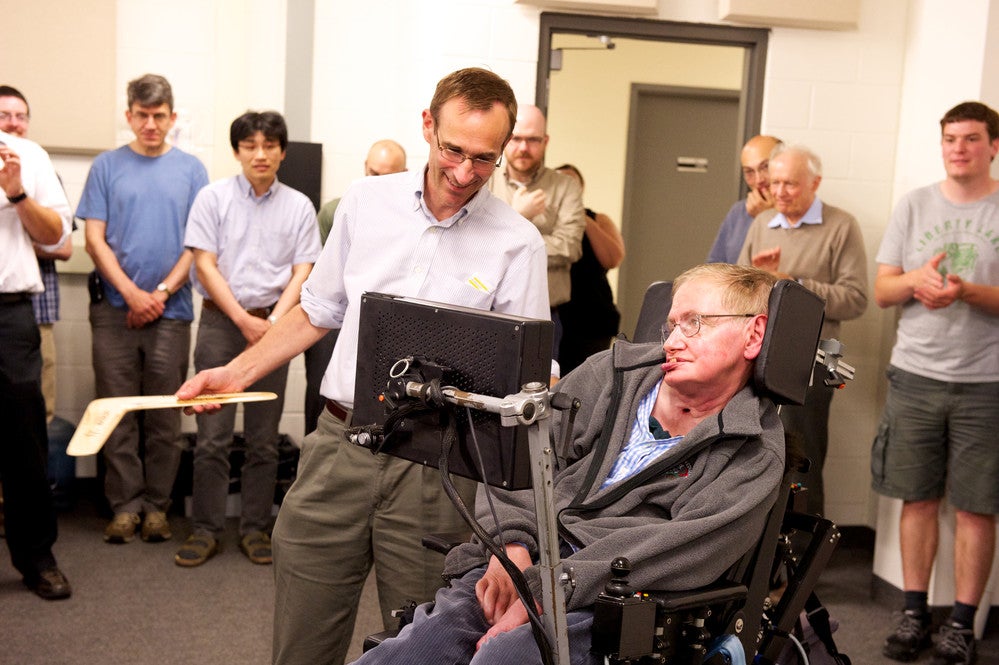
The scientific community, and the world, is deeply saddened by the news of Professor Stephen Hawking’s passing.
Professor Hawking was monumental in shaping our understanding of modern physics. He was known for his theories on black holes and relativity, and made significant contributions to cosmology and quantum gravity. He was also committed to communicating his findings to a broad audience. We are grateful for his support for the Institute for Quantum Computing (IQC) at the University of Waterloo and the Perimeter Institute for Theoretical Physics.
I was fortunate to study with Professor Hawking at the University of Cambridge. In the 1980s, when Professor Hawking was writing his best-selling book A Brief History of Time, it was my job to mathematically demonstrate his theory about what happens to time in a contracting universe. Instead, I found that the math just didn’t add up, meaning that Hawking’s suggestion – that time reverses direction – could not be true.
Afterwards, he gave me a copy of his book with a personalized inscription: “To Raymond, who showed me that the arrow of time is not a boomerang. Thank you for all your help. Stephen.”
When Professor Hawking came to visit IQC in 2010, I gave him a boomerang. He immediately understood its significance. The boomerang was a fun inside joke, but it was more than that. It was a way of saying that, although time is indeed an arrow, it has a way of bringing our lives – and what is most important to us – full circle.
We thank Professor Hawking for his impactful contributions to theoretical physics. He was an incredible scientist who has changed the way we think about the universe. His work will continue to inspire scientists all over the world, and generations for years to come.
Raymond Laflamme
Founding Executive Director,
Institute for Quantum Computing,
University of Waterloo